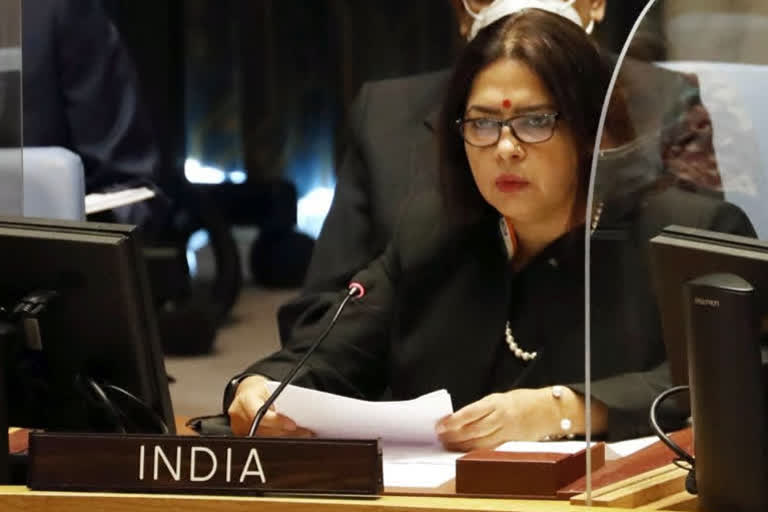New Delhi: India on Monday urged the Non-Aligned Movement (NAM) to carry out an honest introspection about its functioning with an aim to ensure the grouping's continuing relevance and influence on contemporary global issues.
In an address at a meeting in Belgrade to mark the 60th anniversary of the NAM, Minister of State for External Affairs Meenakashi Lekhi also talked about the Afghanistan crisis and emphasised that the Afghan soil "cannot be and should not be" used to mount terror attacks against any country while referring to a UN Security Council resolution.
Talking about the NAM's journey, she said its core principles provided the moral impetus for the decolonisation process, leading to the independence of many of the countries represented at the grouping.
"It brought to the fore an international culture of justice and peace, and an emphasis on promoting mutual interest, solidarity and respect for national sovereignty," Lekhi said.
"However, while we reflect on past achievements, this is equally a time for honest introspection about our Movement -- what must we do to ensure the continuing relevance and influence of NAM on global outcomes," she said.
In the recent past, Lekhi said the NAM has been effective in some areas where it spoke in one voice but the grouping has increasingly become ineffective in certain other areas, particularly in tackling new and emerging challenges.
"This is primarily due to the tendencies of some NAM members to deliberately take up divisive issues, or to use the NAM platform for bilateral score-settling, thereby creating division among us," she said.
"Such pursuance of partisan agenda rather than working towards strengthening our collective effort has resulted in an increasing number of members having to disassociate themselves from NAM positions," she added.
The NAM is a grouping of around 120 developing countries.
"Whether it is achieving 2030 developmental targets, countering the scourge of terror, combating climate change or defeating the pandemic -- these are all issues which surpass our individual capacities," Lekhi said.
She said the way in which the COVID-19 pandemic has wreaked havoc across the globe has exposed the inadequacies of the multilateral system in effectively responding to perhaps the biggest challenge of contemporary times.
"NAM, with its diversity, shared developmental experience, and youthful and dynamic population, has the potential to take the lead and be a force for global good," she said.
She said the NAM's willingness to make compromises for the sake of its collective interests, and for the sake of effectively addressing new global challenges like the pandemic, terrorism and climate change will determine whether the grouping remained relevant in a fast challenging world.
"Following recent developments in Afghanistan, it is absolutely imperative that the approach of the international community is guided by UN Security Council Resolution 2593, that was adopted under India's August Presidency of the UNSC," Lekhi said.
She said the resolution has clearly reaffirmed that Afghanistan soil cannot be and should not be used to mount terror attacks against any country.
The UNSC resolution, adopted on August 30 under India's presidency of the global body, talked about the need for upholding human rights in Afghanistan, demanded that Afghan territory should not be used for terrorism and that a negotiated political settlement should be found out to the crisis.
PTI



